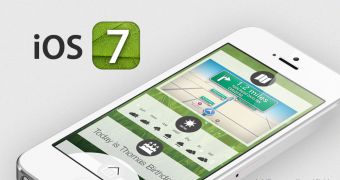Apple may or may not put iOS 7 in the hands of the customer next week, but one thing is for sure: they’re going to show it to the world, and some users are bound to feel both excitement and some disappointment at the same time.
Sometime during the iOS 7 presentation on Monday, Apple will most likely confirm which devices will support the software and which ones will not.
With every new major release of the iOS operating system, Apple has struggled to keep the oldest iDevices on board, even if that resulted in a lot of discrepancies regarding feature support for each device in part.
For instance, when Apple rolled out iOS 6, the company confirmed that it would be supported on most iDevices, with the exception of the original iPad, some of the first iPod touches, and the first two iPhones.
iOS 6 compatibility starts at iPhone 3GS and all the iDevices that were launched around that same time (2009).
With iOS 7, the story will be similar in that Apple will be forced to drop support for some of the older iPhones and iPads, as well as the iPod touch range of media players.
Based on this historical model of incrementing software versus decrementing hardware, we can deduce (somewhat accurately) which of the existing device models are likely to boot up iOS 7.
This is not a given, but based on processor speed, RAM, and storage, as well as the display quality, the following devices are likely to be the only models in circulation that will run Apple’s next-generation iOS.
- iPhone 5 - iPhone 4S - iPod touch 5th-generation - iPad 4th generation - iPad mini - iPad 2 (naturally, all the new iDevices to debut in 2013 and beyond will support the software natively)
Apple fanatics will surely notice that the list excludes quite a lot of iPods and iPhones that are still somewhat popular today, such as the iPhone 4, and the fourth-generation iPod touch. The iPhone 3GS is also noticeably absent from the enumeration.
Apple phasing out the 3GS is pretty much a given, but we also have plenty of reasons to believe that even newer iPhone models (such as the iPhone 4) will not be supported by iOS 7, and it all has to do with the processor these devices pack inside.
The A4, which powers the (2010) iPhone 4 and the fourth-generation iPod touch, is already struggling to cope with the resource-demanding iOS 6.
Even the dual-core A5 might not be enough to juggle all the features inside Jony Ive's revamped iOS 7, which would also drop the iPad 2 and the iPad mini (as well as other 2011 devices) from the waiting list.
Even new-generation devices are problematic on the newest iOS builds. High CPU/GPU usage is the primary cause for poor battery life.
Apple will want to ensure smooth sailing for everyone on iOS 7, and that means some people will have to think of upgrading to an iPhone 4S, a third-generation iPad, or one of the newer iPod touch players, in order to rock iOS 7 and all its perks.
Disclaimer
This is a Personal Thoughts piece reflecting the author’s “personal” opinion on matters relating to Apple and / or the products associated with the Apple brand. This article should not be taken as the official stance of Softpedia on Apple-related matters.

 14 DAY TRIAL //
14 DAY TRIAL //